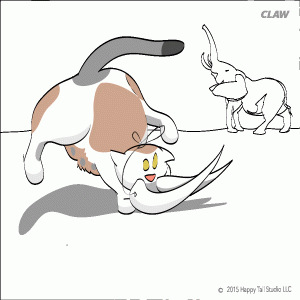Action for Animals: Elephants
Elephant Sized Problems – The World Elephant Society advocates on behalf of the urgent plight of these intelligent, important animals.
Roughly one elephant dies every 15 minutes in the world. Most population estimates indicate that fewer than 500,000 African elephants and 40,000 Asian elephants remain alive in the world. So that shocking number – four elephants dead an hour – means that elephant extinction is likely to occur within your lifetime.
Despite public outrage over poaching, the U.S. remains the second largest market in the world for ivory. In 2012 National Geographic featured a groundbreaking story by Brian Christy, “Blood Ivory,” which focused on the elephant crisis and the role of the global ivory trade. Habitat loss and poaching damage human and wildlife communities, however, the ivory trade persists, and the threat to species survival is imminent.
Without a serious change, the end of elephants could happen in about a decade. What can one person do to help eliminate domestic black markets ivory? Here are five ways to support lifesaving, meaningful change for elephants:
- Don’t buy ivory!
- Learn more about elephants and the crisis they face and take action!
- Speak Out: Tell the U.S. Fish and Wildlife Service you support tightened controls on commercial ivory sales and regulations that protect elephants.
- Share the facts because elephants need a global movement now!
- Stronger protection policies and enforcement of poaching regulations may be the difference between life and death of a species. Every action matters and get involved!
- Bonus: attend this National Geographic event with Bryan Christy October 22, where he will share insights on poaching and illegal wildlife trafficking.

Tusks Belong on Elephants
The crisis is happening now, all over the world. The threat to elephants is urgent. The threat is real, the threat is human, and the threat is stoppable. Don’t let elephant extinction happen on your watch.
“The hottest places in hell are reserved for those who, in times of great moral crisis, maintain their neutrality.” ~ Dante

